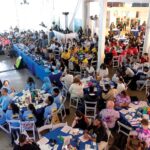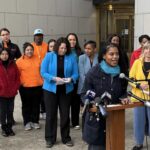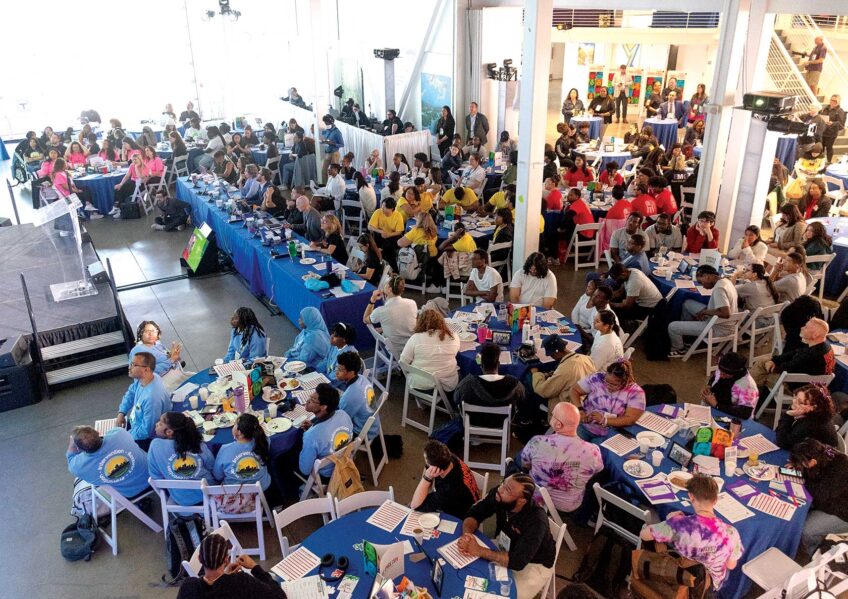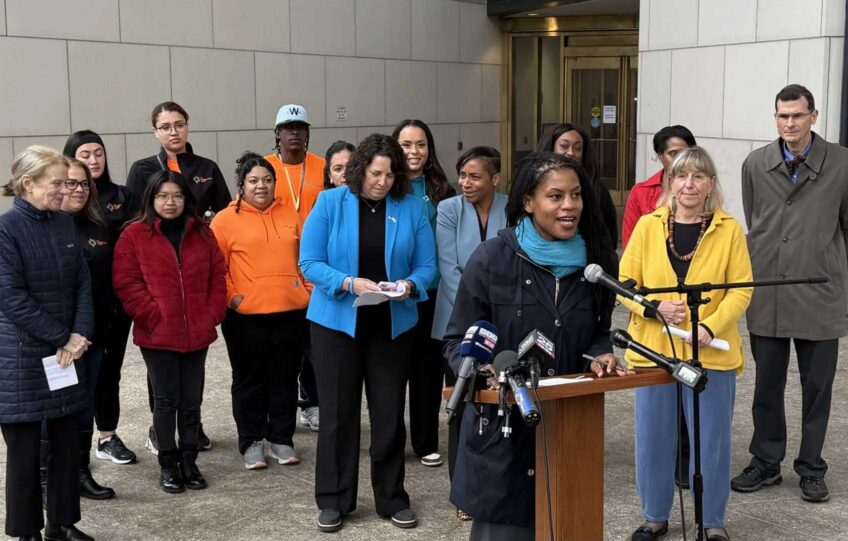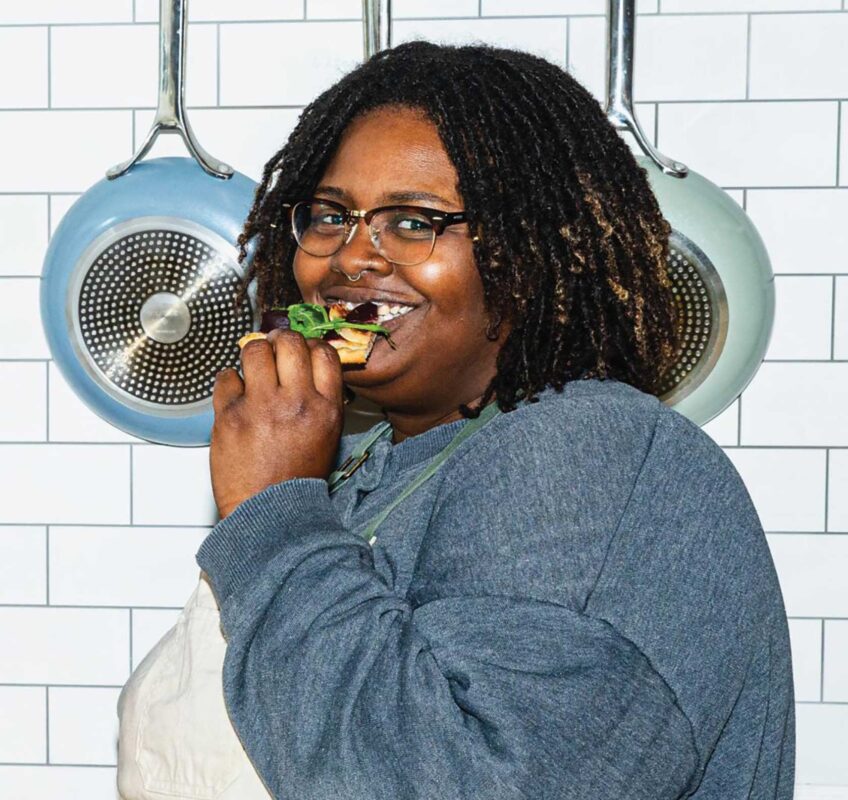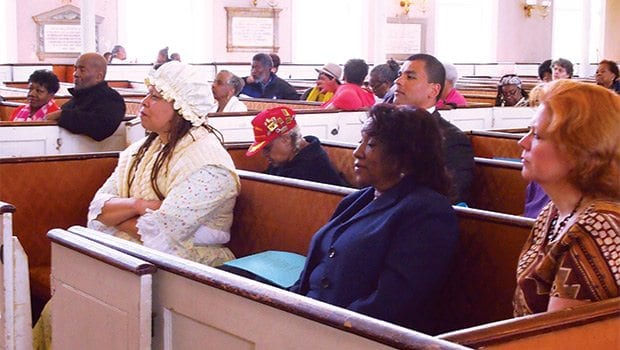
For nearly 400 years, generations of residents have grown up within eyesight of the towering spire of the First Church in Roxbury.
With paint peeling and a 19th century interior in need of updates, the Unitarian Universalist Urban Ministries, which now owns the building, is looking to bring it back to its prominent role in Roxbury history.
“Our vision for this space is to return it to its status as a meetinghouse for Roxbury,” Rev. Mary Margaret Earl told community members gathered in the church during Monday’s Roxbury Patriots’ Day celebration. “We believe this can be a true cultural center for Roxbury.”
Rev. Earl has launched a $2.2 million capital campaign for the renovations. She says she expects to begin work on repairing and painting the exterior of the building by the end of this coming summer. Exterior work will include repairs to the church steeple and repairs to windows and shutters.
“We want it to be as beautiful as it can be to honor Roxbury,” she says. “People really love this building. We happen to be stewards of it.”
The work has already begun. With a grant from the Harold Witworth Pierce Charitable Trust, UUUM replaced the oil furnace with a gas heating system.

Renovations are being planned for the First Church, built in 1804.
A gathering place
For much of the church’s history, it served a dual role, explained Thomas Plant, president of the Roxbury Historical Society.
“It has served as a civic meeting space and a spiritual center,” he says.
The current church is the fifth building on the site. The first church, built in 1632, served a congregation of about 30 Puritans. In 1674 a larger meeting house was constructed. That edifice burned in 1741. The next church, built that same year, survived through the Revolutionary War, witnessing the ride of William Dawes, who passed by on his mission to warn revolutionary forces of advancing British troops — the event commemorated at Monday’s Patriots’ Day celebration.
The current church was built in 1804 and is the longest-surviving building on that site. While the names of the Puritan clergy who preached on the site grace its walls, the church now belongs to the more progressive spiritual descendants of that severe sect.
“You read the last names of the people in this congregation, and you think you’re reading a street directory of Roxbury,” says state Rep. Byron Rushing. “Eliot, Ruggles, Dudley, Heath.”
Although Unitarian services ended in the church during the 1970s, the building — and the adjoining Unitarian Universalist Urban Ministry Building and Putnam Chapel, have been in constant use.
In the 60 or so years that blacks have been the majority population in Roxbury, the church evolved into a space for black community events.
“It’s one of the spaces black people have appreciated the most since they moved to Roxbury,” says Rushing. “It’s really important that this building be restored. The community is going to be happy to have it renovated.”
The Urban Ministries is a social justice-focused nonprofit organization that in Boston works to provide youth services, including after-school space and a summer day camp. The church building and its connected meeting rooms also host political forums and cultural events.
Rev. Earl says the renovation of the interior of the church will focus on making the space more conducive to forums and events.
“We want to honor the history, but we also want to make it as functional as possible for today’s uses,” she says. “Part of our mission is to bring people together across difference. The love people have for this building can bring people together.”
Currently, the building has the capacity to seat nearly 800 in boxed pews on the main floor and balcony space. Improving visibility and expanding performance space might involve removing some of the boxed pews at the front of the church and, possibly, removing the raised pulpit, from which pastors of yore preached down to their flocks.
Earl says UUUM is looking for community input on the planned renovations.
“We want to solicit from the community what events they want to have here,” she says.
The recommendations will help determine the scope of the renovations, she says. The first meeting will be May 12 at 6:30 p.m.



